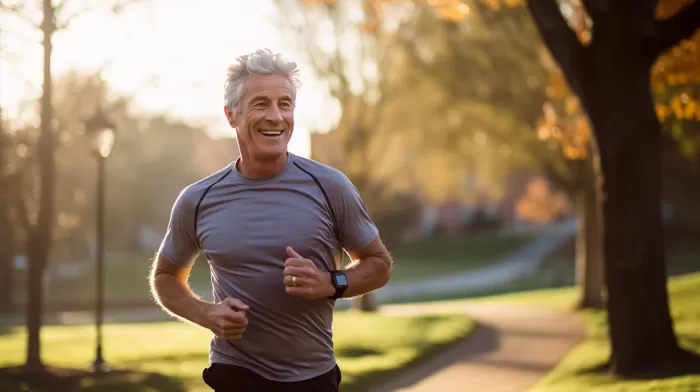Growing older comes with wisdom and life experiences that younger generations can learn from. However, aging also brings about concerns for maintaining cognitive functions and avoiding brain fog. The great news is that there is a clear path to achieving a better brain, even as we age. This path includes exercise and taking care of our lungs and heart. By doing so, we can hold onto our memory and cognitive skills more effectively.
Exercise to Support Lung and Heart Health
A study conducted at the Boston University School of Medicine found that seniors who exercise and maintain better lung and heart health can retain clear thinking and avoid age-related brain fog. This means that if you can keep physically fit — leading to stronger cardiorespiratory fitness — your brain will also be more fit.
The Importance of Cardiorespiratory Fitness
Cardiorespiratory fitness is a measure of the ability of your lungs, heart, and circulatory system to deliver oxygen to your muscles during sustained physical activity. A high level of cardiorespiratory fitness can lower the risk of heart disease, stroke, and other chronic diseases.
Getting older often increases the risk of losing executive brain functions, such as problem-solving, organization, and planning. Furthermore, long-term memory can suffer as we age, impacting our quality of life and independent living.
The Study: Comparing Younger and Older Adults
In the mentioned study conducted at the Boston University School of Medicine, researchers analyzed the health of 33 people ages 18 to 31 and compared it to the health of 27 people ages 55 to 82. The study participants had their cardiorespiratory levels checked and underwent tests to measure their brainpower and memory.
These tests included quizzes that measured problem-solving skills and planning abilities. Researchers found that older people in good physical shape matched younger individuals in performing executive functions. Although their long-term memories were not quite as good as those of younger people, they were better than the memories of older adults who were not physically fit.
Engaging in Activities that Can Improve Cardiorespiratory Fitness
These research findings showcasing the benefits of staying active and fit for the brain’s executive functions and long-term memory have significant implications for our quality of life. Engaging in activities that can improve cardiorespiratory fitness, such as walking, dancing, and aerobic exercises, can be inexpensive, accessible, and enjoyable. These activities can potentially delay cognitive decline and prolong independent function, according to the study’s researchers.
Tips for Improving and Maintaining Brain Health
To give yourself the best chance of staying sharp and clear-headed as you age, follow these tips:
- Stay active. Engage in regular physical activity to help strengthen your heart and lungs, which in turn can lead to improved brain function. Aim for at least 150 minutes of moderate-intensity aerobic activity or 75 minutes of vigorous-intensity aerobic activity per week, as recommended by the American Heart Association.
-
Eat a balanced diet. A diet rich in fruits, vegetables, whole grains, lean proteins, and healthy fats can support brain health and help protect against cognitive decline. The MIND diet, a combination of the Mediterranean and DASH diets, has been specifically designed to promote brain health.
-
Keep your mind engaged. Stay mentally active by engaging in activities that challenge you, such as reading, solving puzzles, or learning new skills or hobbies.
-
Get enough sleep. Aim for 7-9 hours of sleep per night, as recommended by the National Sleep Foundation. Adequate sleep is crucial for overall health, and it plays a vital role in maintaining cognitive function.
-
Manage stress. Find ways to manage stress, such as through meditation, deep-breathing exercises, or engaging in activities you enjoy. Chronic stress has been linked to cognitive decline and memory loss.
-
Stay social. Engage in regular social activities, as staying connected with friends and family can help maintain cognitive function.
By adopting a healthy lifestyle that includes regular exercise, a balanced diet, and engaging the brain and social activities, we can effectively support brain health and enhance our memory and cognitive skills as we age. So lace up those walking shoes, sign up for that dance class, and get ready to embark on the path to a better brain!



